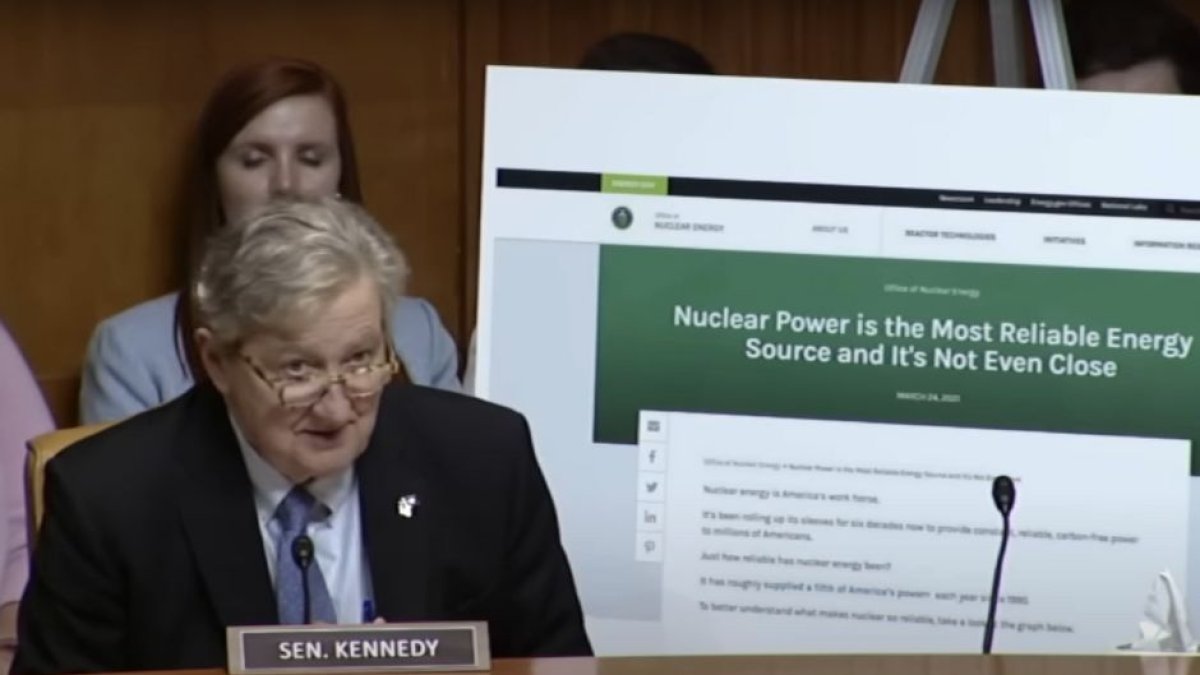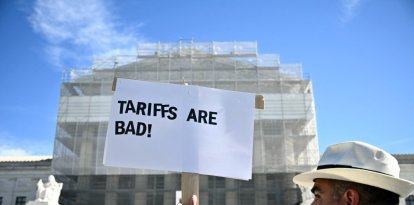Department of Energy ignores costs and benefits of achieving carbon neutrality by 2050
The DOE deputy secretary, David Turk, was unable to answer Senator Kennedy's questions in a Senate subcommittee meeting to increase the agency's budget.

Department of Energy ignores costs and benefits of achieving carbon neutrality by 2050
How much will the government's goal of achieving carbon neutrality cost? Carbon neutrality is the idea of balancing the amount of carbon dioxide emitted with the amount removed by both natural and manmade processes. The Department of Energy does not seem to know the answer to this question. This was demonstrated by Deputy Secretary David Turk last Wednesday when he was questioned on the matter by Senator John Neely Kennedy.
The exchange, which occurred in the Senate Energy and Water Development Appropriations Subcommittee, began when the senator asked Turk to give him "his best estimate" of when the United States might reach carbon neutrality. The Biden official said that, according to "climate scientists around the world" and "cutting-edge" experts in North America, the target should be 2050.
"So the cost that I focus on even more is all the costs that are going to happen if we don't get our act together," Turk replied later, when Kennedy asked him how much it would cost to achieve this goal over the next 27 years.
But Kennedy insisted: "No, the total cost. How much will it cost us to get to carbon neutrality?" Turk limited himself to putting the figure at "trillions of dollars" and, when asked, said he could not specify how many trillions because there are "a variety" of estimates.
The secretary argued instead that green energy would help save money. But, again, he could not specify how much. In the absence of clarity, the Republican proposed a figure: $50 trillion. Turk agreed that it would "undoubtedly" cost trillions.
The undersecretary also did not know what to answer when Kennedy asked him how much spending those trillions over the next 30 years would reduce global temperatures. So the senator asserted:
Asking for more money
The senior DOE official was in the Senate to discuss the budget for the agency in 2024. For the next fiscal year, DOE is requesting $51.99 billion, up 13.6% from the previous year.
Of the total requested, allocations to create "green energy" include $1.2 billion for infrastructure, $9.4 billion for technology innovation to "accelerate the transition" and $1.2 billion for industrial decarbonization.
However, the truth is that the plan to achieve carbon neutrality is already underway. President Joe Biden signed an executive order setting a goal of carbon neutrality for the federal government by 2050. Just last month, the administration announced $250 million for federal agencies to adapt their buildings with this goal in mind.

























